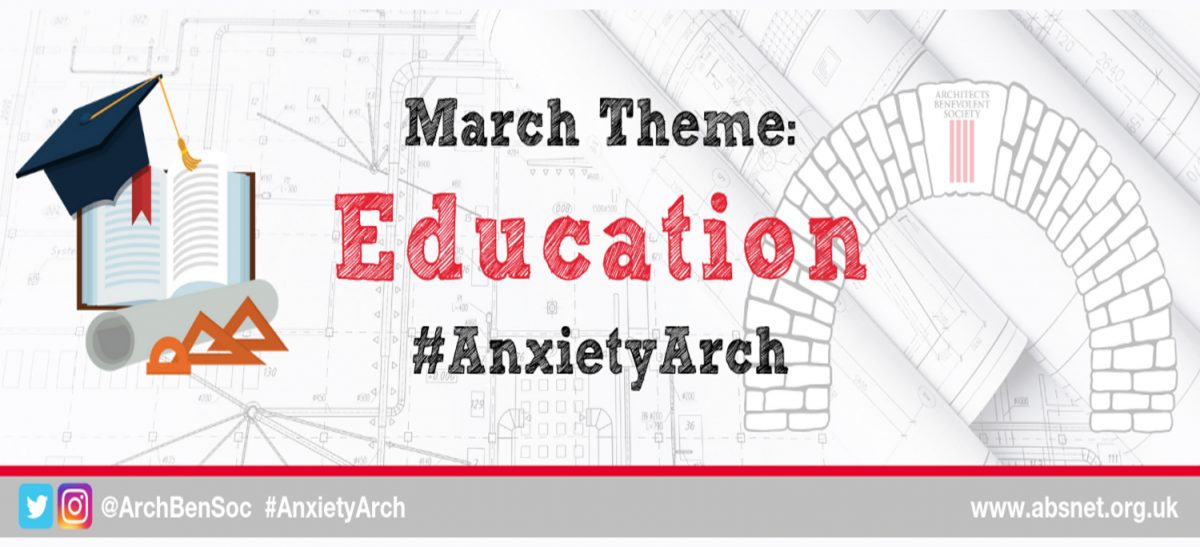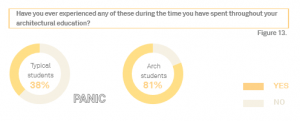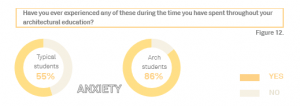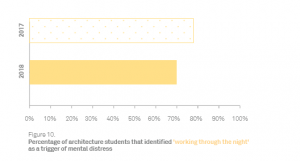Home | Our news & views |
Mental Wellbeing and the Architecture Student – Dissertation by Melissa Kirkpatrick

Home | Our news & views |


In her research, Melissa used both quantitative and qualitative methods to compare and contrast both students and educational staff’s responses to questions posed in surveys from the RIBA (such as the 2017 Student Mental Health Survey) to understand the difficulties students are experiencing with their mental health, the perspective of their educators, and ascertain what measures could be put in place to alleviate this concern.

Melissa found that 33% of architectural students currently believe they have a mental health problem, with 70% reporting ‘working overnight’ as contributing to their mental distress. With pressure to complete looming deadlines leading to entire nights spent in the studio, it is clear to see that this has a negative effect on students’ mental wellbeing. Regarding deadlines, students cited lack of time management as a factor increasing their anxiety, with tutors sometimes giving feedback on their work so late that students had to work overnight to make necessary adjustments to their work. This also demonstrates that there is a certain miscommunication between students and staff, an issue that students have raised in the study, with students perceiving staff’s expectations of them differently to how the responding staff described them. Other factors contributing to the anxiety and panic students have expressed in this study are the cost of architectural students’ education, ‘studio culture’ and the frequent ‘crit’ deadlines amongst an already heavy workload.

Melissa suggests that to help improve students’ wellbeing, there needs to be an open dialogue between students and lecturers, with training for lecturers on how to communicate with and support students. Alongside this, it is suggested that mental health education workshops should be compulsory for students, with part of these including sessions on mindfulness. Other recommendations include revoking 24 hour access to studios, restricting students’ workload and changing the fee system.

Melissa presented her findings in October 2018 at the ABS and RIBA event in Sheffield for World Mental Health Day as part of a discussion about mental wellbeing for architectural students. You can read more about the stresses architectural students face and proposed solutions for the future progression of architectural study in Melissa’s dissertation: Mental Wellbeing and the Architecture Student.
We are very grateful to Melissa for her research and insight into the experience of architectural students at university as it has given us a starting point for scoping the scale of the issue. We are pleased to have welcomed her to our team of ambassadors.